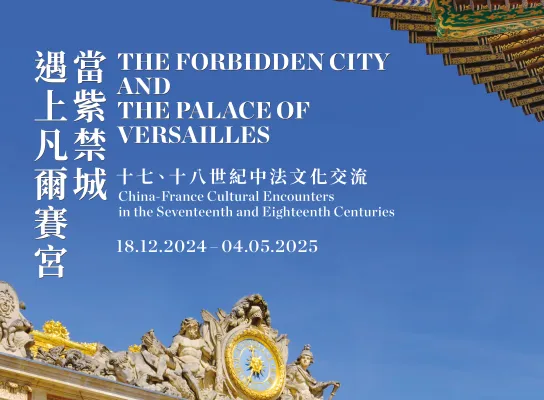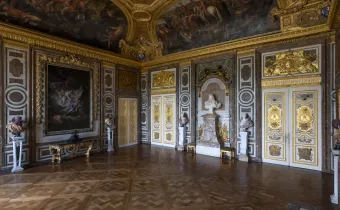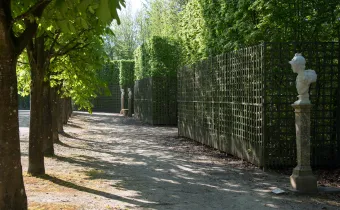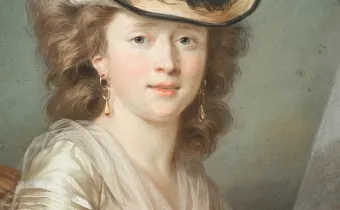Louis XIV: Initiator of relations with CHina
The exhibition spotlights the diplomatic policy initiated by Louis XIV toward Emperor Kangxi. In 1685, French Jesuit fathers were sent to China, joining the Beijing court as mathematicians of the King. This initiative established a foundation of trust and mutual respect between the two nations that endured until the late 18th century. This unique diplomatic context and reciprocal interest played a key role in the emergence of modern sinology in France.
A Chinese Aesthetic that swept Through France
At the French court, enthusiasm for China and its art manifested through the importation of Chinese art objects, the transformation of certain imported works—such as adding gilt-bronze mounts to porcelains or using lacquer panels for French furniture—the imitation of Chinese products, highlighted by the frenzied quest to uncover the secret of kaolin porcelain, and the significant influence of Chinese art on French art, particularly in the decorative arts.
The exhibition will underscore the endless inspiration that Chinese art represented for French artists and intellectuals, impacting fields such as objets d’art, interior decor, architecture, garden design, painting, music, and science. The works displayed in Hong Kong will illustrate the genuine fascination of the Versailles court and major French collectors for Chinese creations. Moreover, the exhibition reveals the real interest Chinese emperors of the 17th and 18th centuries had in French scientific knowledge and expertise.
A New Perspective on Sino-French relations through the rediscovery of objets d’art
In April 2024, an exhibition at the Forbidden City inaugurated the 60th anniversary of diplomatic relations between China and France for both the Palace Museum and the Palace of Versailles. This exhibition, which drew over 175,000 visitors, will find its new reiteration at the Hong Kong Palace Museum starting from December 18 2024 to May 4 2025, as a culmination of this celebratory year, featuring some of Versailles’ prestigious acquisitions from the past decade. A unique aspect of this exhibition will be the pairing of works from Chinese and French collections, creating a dialogue that highlights the mutual interest of both cultures. Furthermore, scientific collaboration between the teams at the Palace of Versailles and the Palace Museum has led to the rediscovery of previously unknown objects, deepening our understanding of this longstanding history.
Curatorship
Marie-Laure de Rochebrune, General Heritage Curator, Palace of Versailles
Guo Fuxiang, Research Fellow, Palace Museum ; and Wenxin Wang, Associated Curator, with contributions of Assistant Curators Phoebe Yin and Mia Ma, Hong Kong Palace Museum
Versailles et its chinese visitors
Chinese visitors represent the second-largest foreign nationality among visitors at the Palace of Versailles, accounting for 13% of international visitors in 2019. To enhance the experience for Chinese visitors—whose numbers were steadily increasing before the pandemic—Versailles has implemented dedicated initiatives. All visitor information and mediation tools are translated into Chinese, including the audio guide, which covers the full tour. To establish a presence in China’s digital ecosystem, Versailles has been active on Chinese social media platforms since 2015, with over 326,000 followers on WeChat, Weibo, Douyin, and Bilibili. Since 2019, Versailles has also been among the first museums to offer online and contactless payment options via WeChat Pay and Alipay.
In China, the traveling exhibition Virtually Versailles has already attracted 260,000 visitors across Singapore, Shanghai, Hong Kong, Macau, and Hangzhou. Furthermore, the Palace of Versailles fosters privileged relationships with Chinese cultural institutions such as the Forbidden City and the Hong Kong Palace Museum, organizing exhibitions in close collaboration.





